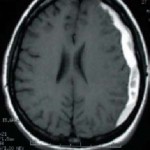Traumatic brain injury (TBI) is a critical public health concern across the globe. World Health Organization data suggest that by the year 2020, TBI will surpass many other diseases as the major cause of death and disability. In the USA, there are approximately 1.7 million cases of TBI annually, with 275,000 of those requiring hospitalization. In addition, approximately 53,000 individuals die of TBI and other contributing injuries.
Neuropsychiatric sequelae of TBI are often responsible for the most disruptive and persistent challenges faced by TBI survivors and their family/caregivers. The associated emotional and behavioral changes can have devastating effects on a survivor’s sense of self, relationships with loved ones, careers, and overall quality of life. The most common complaints following TBI are initial and persistent cognitive deficits, including impairments of short term memory, attention, and the speed of information processing. Cognitive deficits impede many aspects of readaptation to daily life, and may contribute to certain challenging behaviors that stem from poor judgment or problem solving deficits. While not all neuropsychiatric sequelae will sustain over time at a sufficient severity to be considered a disorder, TBI does increase the risk of developing a number of neuropsychiatric disorders, including depression, anxiety, substance abuse, psychosis. Importantly, and of especial importance in veterans, there is significant comorbidity between TBI and post-traumatic stress disorder (PTSD).


With close collaborators, the FNL is studying several aspects of TBI, including
- Severe injury resulting in disorders of consciousness. The FNL is part of the Spaulding-Harvard TBI Model System (TBIMS) and is collaborating on the TBIMS Site-Specific Project to study this condition.
- The role of neuroinflammation in TBI
- Novel interventions for TBI
